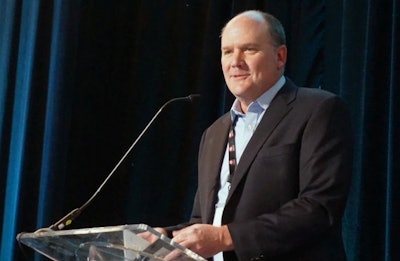
Mark Kaminsky, Koch Foods chief operating officer (COO), opened the 2019 Chicken Marketing Summit challenging the industry to sell more chicken. Production is expected to rise by 10 percent and a number of what he called wild cards will influence future demand.
Kaminsky, the current National Chicken Council chairman, said the situation surrounding African swine fever (ASF), pending trade deals and the U.S. corn crop will define the market in 2019 and beyond. He spoke on July 22.
“Chicken has always been an industry that has been resourceful and there is no doubt in my mind that we will get to where we need to go,” Kaminsky said. “But it will be a global world market that is going to have to help us.”
African swine fever
The global demand for meat will be fundamentally altered by ASF’s spread in China and Asia, but he said there isn’t a dramatic uptick in business just yet. For now, there is enough pork in China to meet demand. That won’t last forever. Historically, Kaminsky said, the U.S. hasn’t sold much chicken to China – just chicken paws – but it’s possible a protein shortage would push China to import more U.S. product.
Trade agreements
Any direct chicken trade with China would need a new trade deal between the world’s two largest economies. Kaminsky said a deal to end the so-called trade war is often predicted but has yet to materialize. If an agreement is made it must be strong. A weak deal, or a deal without enforcement agents, would ultimately be bad for the market.
Closer to home, the U.S. needs to ratify a new trade agreement with Mexico and Canada. The U.S. Mexico Canada Agreement was signed by the three nominal parties in 2018 but so far only Mexico’s congress ratified the treaty. Kaminsky said politics present the only obstacle to passing it in Congress.
The corn market
Finally, the results of the 2019 corn crop in the U.S. will be a critical component to for the integrated poultry industry. Kaminsky said the crop currently depends on its location as some areas benefited from a rainy spring while others were unable to plant until later in the year. There will be, he said, winners and losers based on this.
Ethanol will, he said, no longer be as disruptive to the corn market as it was in the past. Due to new policies, ethanol makers will be competing on a level playing field with other corn buyers. Kaminsky said a downfall in ethanol would take pressure off the corn crop if it comes in substandard.

















